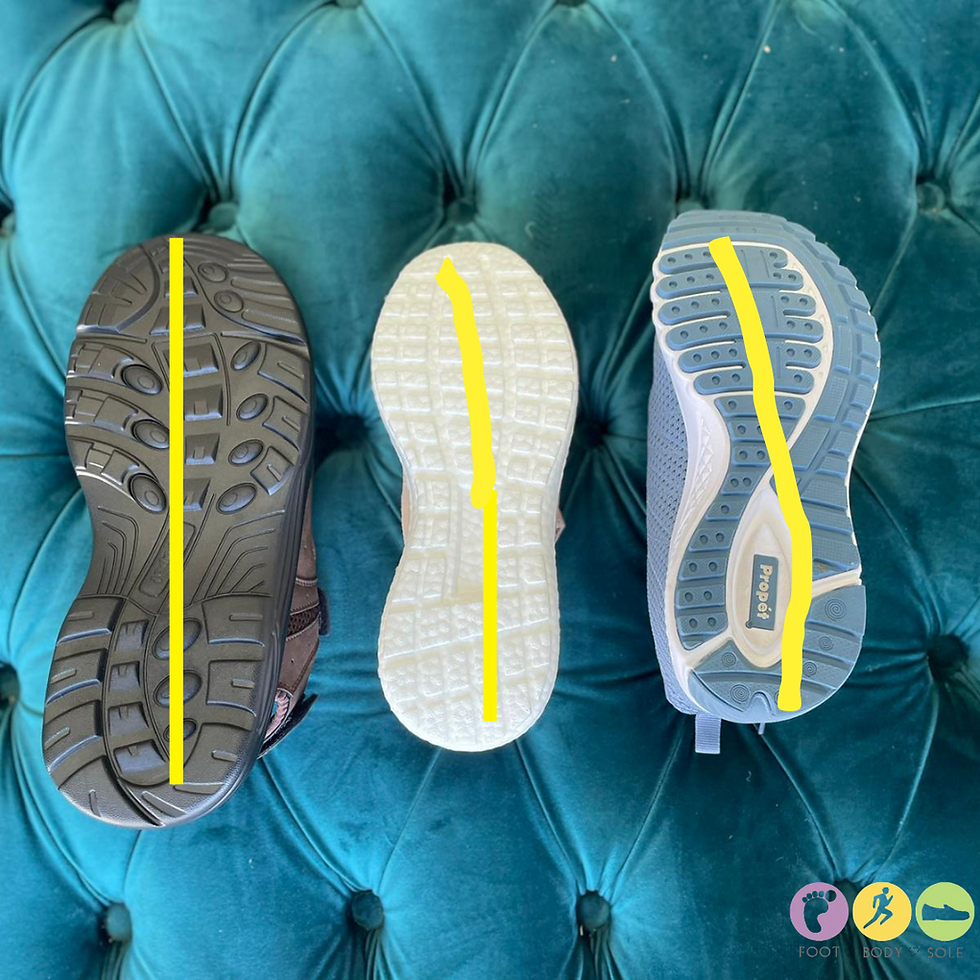Fungal toenails - Why it is important to catch it early and treat it
- Foot Body Sole
- Jun 2, 2021
- 3 min read
Do you have discoloured, thickened or brittle toenails?
If so, you may have onychomycosis.

Onychomycosis is a fungal infection of the nails which is a common condition we see at the clinic. 10% of the general population has this so you are not alone. Onchomycosis is more common on toenails compared to fingernails due to slower growth, reduced blood supply and likelihood of being in a dark/moist environment.

How did I get this and why is it important to catch it early?
Fungus growth thrives in a dark and moist environment. Onychomycosis is contagious therefore it can be transmitted via direct contact or contact with contaminated materials which is why you want to catch it early. This includes shoes, socks and walking barefoot over a surface with fungal spores.
If left untreated, toenail fungus can spread to the surrounding skin on the foot. This can lead to tinea pedis, a condition with signs and symptoms of itchy, red and cracked skin.
There is a higher chance of being susceptible to a fungal nail infection if you have distorted nails, history of nail trauma, genetic predisposition, hyperhidrosis, tinea pedis, and psoriasis. Studies have also shown it is more common in smokers and those who are exposed to shared bathing facilities, use occlusive footwear, such as sneakers and socks.

How can I diagnose this?
Accurate diagnosis is crucial for successful treatment as some other conditions can mimic a fungal toenail infection. This includes, psoriasis, ingrown toenails, chronic nail trauma, skin cancer, certain inflammatory conditions and onycholysis, which must be considered.
Onychomychosis can be diagnosed by visual observation alone. However we do offer Diafactory testing at Foot Body Sole, which is a fungal nail test kit that can confirm fungal infections of the nails.

What should I do now?
Visit your nearest Podiatry clinic. Podiatrists specialise in foot conditions whether it is skin, nails or biomechanics related. Once it has been diagnosed as onychomycosis, a recommended treatment plan will be created for you.
At Foot body sole, we aim to get rid of the fungal nail infection as well as prevent recurrent symptoms in the future. If onychomycosis is suspected, we cut, clear and file the nail to reduce thickness and remove any fungal build up present underneath the toenails if possible. We recommend commencing topical treatment on the toenails and a review in 6-8 weeks depending on your case. We provide clear and beneficial education to you about your condition so that you understand how you may have gotten onychomycosis, how to prevent getting it in the future and treatment options to get rid of it. In some cases, we may refer you to your GP for oral medication if required.
Onychomycosis can take up to 12 months or longer to completely resolve so being compliant and patient is required. We recommend regular treatments until your are free of your fungal infection.

How do I use topical treatment on toenails?
There are a wide range of brands and topical treatment for toenails. We recommend an anti-fungal spray for the nails as the application is more convenient. Please speak to your podiatrist if you are unsure which product to purchase.
For a terbinafine hydrochloride (commonly known as Lamisil and Solveasy) spray, the following is how it should be used:
Spray on toenails once a day after the shower, as washing will remove the product thus daily application is crucial.

When treating fungal nails, we are relying on our body's ability to continue growing the nails. This regrowth cycle can take up to 28 weeks which makes treatment onychomycosis a slow process. If throughout treatments there is no progress being made, we will review the product and other treatment options.
TOP TIP: Have good foot hygiene. Ensure you are cleaning your feet and between the toes in the shower daily and dry them well after. Increased moisture can encourage fungus growth. Use a tea tree oil foot spray after the shower on the toenails to prevent fungal growth. Tea tree has antifungal properties and it is natural and inexpensive.
Click below if you would like to make an appointment with one of our friendly prodiatrists. We look forward to meeting you.

Phone: 1800 778 316
82 Bridport Street
Albert Park 3206
Victoria, Australia





Comments